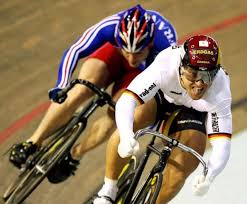Athletes: Achieve Peak Performance with Disciplined Brain Training!

You’ve spent countless hours training and practicing. Maybe you’ve even spoken to the team psychologist to get yourself focused and ready. Then, you still find yourself squandering a chance at goal because you didn't notice a teammate open for a pass? Did you miss an opponent out of the corner of your eye to lose possession or wind up on the ground because of a collision? Did you forget about the person just behind you who sprinted to the finish line unexpectedly? As a professional athlete, you have likely trained to be physically ready for any situation and mentally prepared to compete but do you know that for optimal physical performance your brain needs to be trained to be just as fit as your body?
No matter what sport you play, your brain needs to be wired for alertness, quicker reflexes, rapid decision making, better peripheral vision, solid balance and precise recall. Being aware of your position in relation to others is what helps you execute a winning game plan as well as to help you avoid injury. It is no secret that competing at the highest level in any sport requires an incredible amount of physical and mental training. Any athlete maintaining or working towards a professional career is well aware of the hours of required training before you ever reach the field, ice, pitch, track or court. A training regimen will likely include scientifically measuring your development and progress; from how high you can jump to how much oxygen you’re using during aerobic activity. Even diet will be closely monitored and scheduled depending on your chosen sport and time of week in relation to competition.
One result of all this training and competing is that the plastic nature of your brain allows you to silence the prefrontal cortex of your brain. The prefrontal cortex runs the general oversight on your brain and controls movement but after so much physical training your brain also gets trained to run on autopilot. In other words, you can react to unscripted situations without losing focus on the basic skills required for you to compete—avoid a tackle, or make a pass. So while we are beginning to understand how our brains adapt to sport and are learning the beneficial role sports play in terms of brain health, whenever brain training is mentioned, it is usually in the guise of visualization techniques and sports psychologists. This is not the same as training your brain for physical fitness.
Sports psychologists are becoming much more accepted and commonplace at varsity and professional levels. There is an ever increasing breadth of professional athletes, teams and leagues using their services to help focus athletes and even to work on channelling something like aggression properly. Getting into and maintaining the right mindset before a high pressure situation is becoming another measurable component to winning and competing. And, should an athlete be coming back from a severe injury, working to ensure the right mindset will hasten his or her return to form.
With our new understanding of brain plasticity, using scientifically proven brain training program such as BrainHQ is becoming a much more regular aspect of any athlete’s training regime. Athletes who are disciplined at training their brain as well as their body will enable them to:
- improve attention span to stay alert and focused Divided Attention, Target Tracker
- speed up processing of visual information to react quicker to any situation and follow rapid movements; be it a puck or a basketball Visual Sweeps, Hawk Eye
- improve executive functions to make agile decisions, improve abstract thinking, organization, emotional regulation and more Card Shark, Auditory Ace, Mixed Signals, Mind Bender
- extend peripheral vision to capture more at a glance Double Decision, Target Tracker
- improve balance and visual spatial system Visual Sweeps, Double Decision
By harnessing the power of neuroplasticity, your brain can be trained to function at peak, giving you the advantage over your competition who is likely just as skilled, just as fit and just as ready to compete.
DynamicBrain Inc. is the Canadian Partner of Posit Science Corporation providing brain fitness program, BrainHQ in English and French.






 English
English
 Français
Français


